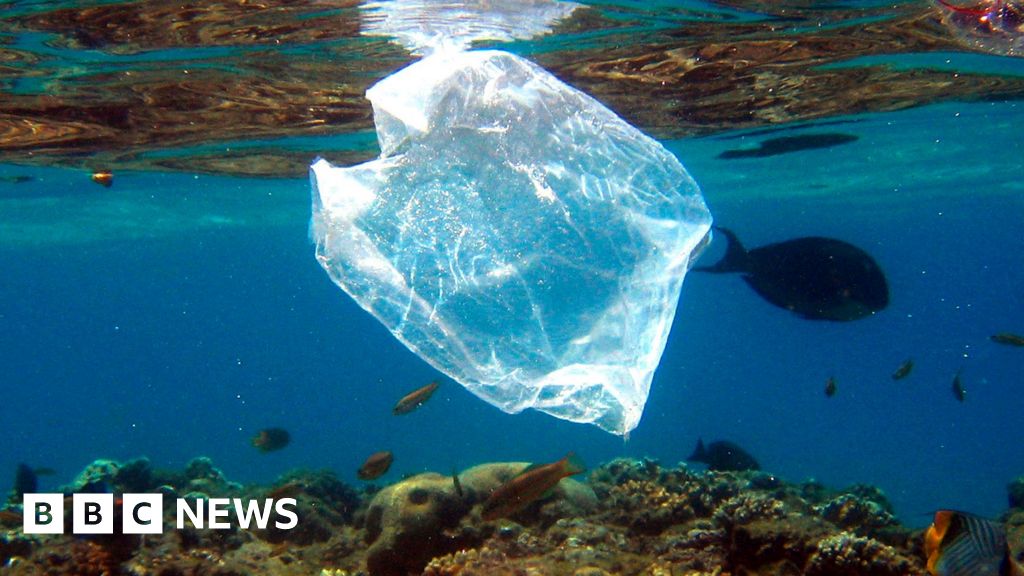Banning or charging for plastic bags is helping stop them ending up on US shorelines, a study of the country's litter suggests. Data from thousands of cleanups showed that areas which tried to reduce bag use saw them fall by at least 25% as a percentage of total litter collected, compared to areas that didn't try. Bans or charging for bags worked better at state rather than town level, and had a bigger impact in places that had a bigger litter problem to begin with. Despite the good news, the researchers cautioned that, overall, more plastic bags are being found across the US – they're just increasing less in those places trying to tackle the issue. Plastic bag laws in the US vary considerably by state, county and town, which made it a useful place for researchers to test the effectiveness of bag policies. Policies range from bans and partial bans (where only thinner bags are banned), to charges on bags and pre-emption laws, where states prevent counties and towns from regulating plastic bags themselves. The researchers used data from shoreline cleanups that recorded bags as a percentage of all items collected, and looked at how this differed in areas with a policy compared to those without. On average, bags made up 4.5% of items collected in cleanups, and were the fifth most common item found after cigarette butts, food wrappers, plastic bottle caps and plastic drinks bottles. Different models were used to analyse the data, which estimated that the relative decrease in bags in areas with a policy was between 25% and 47%. Comparing 182 policies and 45,067 cleanups from 2016 to 2023, the study's authors said it was the largest analysis of how effective such policies are in curbing shoreline litter. The findings highlight the importance of policy in reducing plastic pollution, lead study author Anna Papp said. One key policy opportunity would be the first global plastics treaty that 175 countries will continue negotiating in August, aftertalks collapsed in December. "Stronger results in areas with a higher baseline of plastic bag litter means these policies may be especially effective in these areas," she said. "It's also very important to keep in mind with the treaty, plastic bag policy addresses just one part of the problem. "More comprehensive solutions are needed to address it entirely, with a focus on the production side, consumption, and waste," she said. The research cautions that despite the evidence policies are working to reduce the relative percentage of plastic bags on shorelines, the overall percentage of bags is still increasing in places with and without policies. This is because plastic pollution continues to grow overall, so policies can only make so much of a dent in the trend. In the UK, where charges on single-use plastic bags started to be adopted in 2011, a survey foundthere had been an 80% fallin the number of bags washed up on beaches over a decade. Sign up for our Future Earth newsletterto keep up with the latest climate and environment stories with the BBC's Justin Rowlatt. Outside the UK?Sign up to our international newsletter here.
Plastic bag bans and fees curb US shoreline litter, study suggests
TruthLens AI Suggested Headline:
"Study Finds Plastic Bag Bans and Fees Reduce Shoreline Litter in the US"
TruthLens AI Summary
A recent study highlights the positive impact of banning or charging for plastic bags in reducing shoreline litter across the United States. Analyzing data from thousands of cleanups conducted between 2016 and 2023, researchers found that regions implementing such policies experienced a notable decrease in plastic bag litter, with reductions ranging from 25% to 47% compared to areas without similar regulations. This research is significant as it represents the largest analysis to date on the effectiveness of various plastic bag policies in curbing litter on shorelines. The study revealed that on average, plastic bags accounted for 4.5% of all items collected during cleanups, ranking as the fifth most common type of litter found, trailing behind cigarette butts and food wrappers. The findings suggest that state-level policies are more effective than local ones, particularly in areas that initially faced severe litter problems, indicating that targeted interventions can yield substantial benefits in pollution reduction.
Despite these encouraging results, the researchers also cautioned that the overall presence of plastic bags continues to rise across the country. The variability in plastic bag regulations by state and locality provided a unique opportunity for researchers to evaluate the effectiveness of these policies. Lead author Anna Papp emphasized that while the evidence shows a relative decrease in plastic bag litter where policies are in place, the total percentage of plastic bags remains on the rise due to the broader issue of increasing plastic pollution. She noted that the forthcoming global plastics treaty, which will be negotiated by 175 countries, presents an opportunity to address plastic pollution more comprehensively. Papp stressed the need for holistic solutions that encompass production, consumption, and waste management to effectively tackle the growing plastic crisis, rather than relying solely on bag policies as a singular solution.
TruthLens AI Analysis
You need to be a member to generate the AI analysis for this article.
Log In to Generate AnalysisNot a member yet? Register for free.
